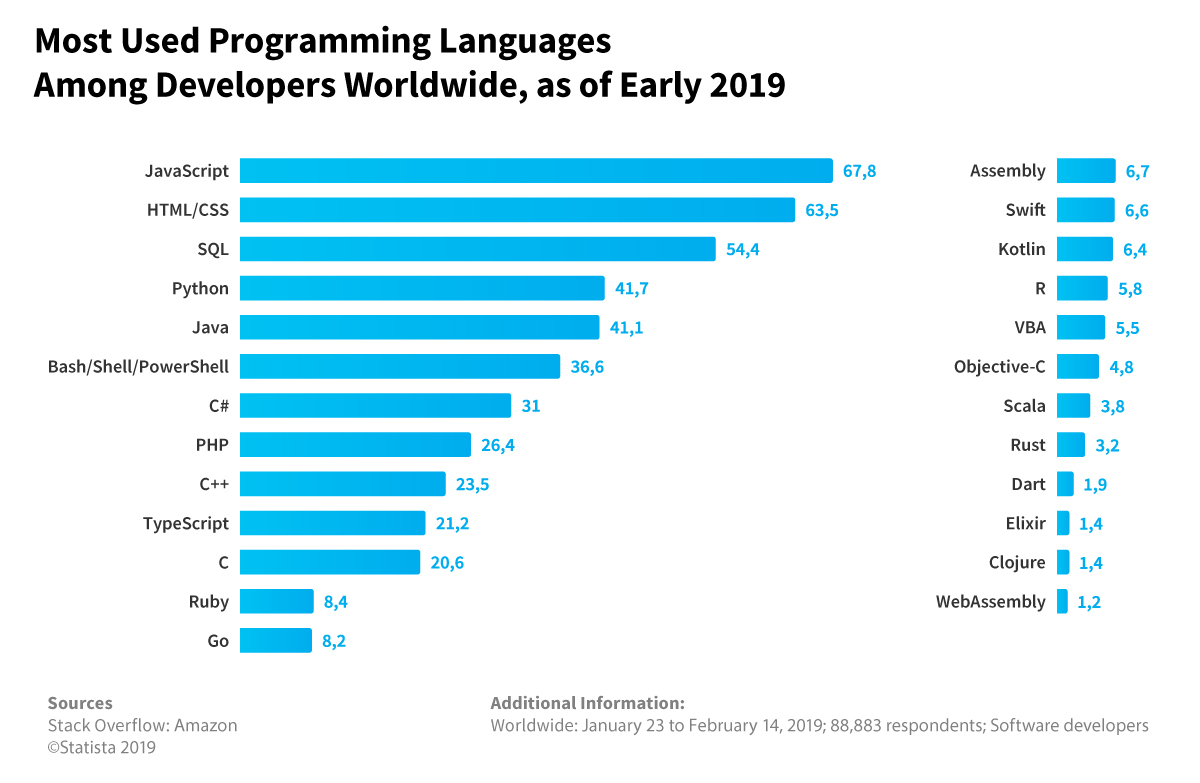Buzz Haven: Your Source for Trending Insights
Stay updated with the latest buzz in news, trends, and lifestyle.
JavaScript Frameworks: The Battle Royale of Code
Discover the ultimate showdown of JavaScript frameworks! Which one will reign supreme? Dive in and find out!
Understanding the Top JavaScript Frameworks: A Comprehensive Comparison
When it comes to web development, understanding the top JavaScript frameworks is essential for building efficient and dynamic applications. Frameworks like React, Angular, and Vue.js have become increasingly popular due to their robust features and community support. React, developed by Facebook, is renowned for its component-based architecture, which enables developers to build reusable UI components. Meanwhile, Angular, maintained by Google, provides a comprehensive solution with its MVC (Model-View-Controller) structure and dependency injection capabilities, making it a favorite for enterprise-level applications. Lastly, Vue.js is celebrated for its simplicity and ease of integration into projects, making it a go-to choice for newcomers and experienced developers alike.
To truly understand the differences among these frameworks, consider the following criteria: performance, learning curve, and community support.
- Performance: React tends to outperform because of its virtual DOM, which optimizes and minimizes UI updates.
- Learning Curve: Vue.js ranks as the easiest to learn, thanks to its straightforward syntax, while Angular has a steeper learning curve due to its extensive features.
- Community Support: All three frameworks boast strong communities, but React has the largest ecosystem, providing a wealth of resources and libraries.

Which JavaScript Framework Should You Choose for Your Next Project?
Choosing the right JavaScript framework for your next project can significantly impact your development process and the performance of your application. Several popular frameworks, including React, Angular, and Vue.js, each offer unique advantages and disadvantages. To make an informed decision, consider factors such as your project requirements, team expertise, and long-term maintainability. For instance, if you need a flexible and efficient framework for building user interfaces, React might be the best choice due to its component-based architecture and strong community support.
On the other hand, if you're looking for a comprehensive solution that includes everything you need out of the box, Angular could be a suitable option with its robust set of features and strong opinionated structure. Similarly, Vue.js is gaining popularity because it provides a simple learning curve while still being powerful enough for complex applications. To summarize, here are a few key points to consider:
- Project complexity: Evaluate how complex your application will be.
- Team skills: Consider your team's familiarity with these frameworks.
- Community support: A strong community can offer valuable resources and plugins.
The Pros and Cons of Popular JavaScript Frameworks: A Deep Dive
When it comes to modern web development, JavaScript frameworks have become essential tools for building dynamic and responsive applications. Popular frameworks like React, Angular, and Vue.js each offer unique advantages. For instance, React is known for its component-based architecture, which enhances reusability and makes managing state simpler. Angular provides a robust structure and features such as two-way data binding, making it ideal for large-scale applications. On the other hand, Vue.js is praised for its gentle learning curve and flexibility, allowing developers to adopt it incrementally without overwhelming them.
However, there are cons associated with each framework, which developers should consider before choosing one for their projects. For example, React's reliance on third-party libraries can lead to issues with code consistency and maintenance. Angular's steep learning curve can deter newcomers, while its tight structure may stifle creativity for experienced developers. Vue.js, despite its advantages, can sometimes struggle with larger projects that require more extensive tooling and community support. Ultimately, understanding the pros and cons of these popular JavaScript frameworks is crucial for making an informed decision in your development journey.